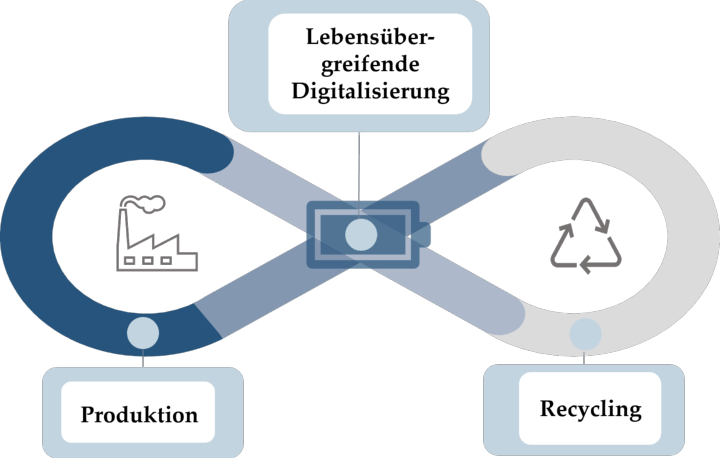The change to electromobility, whether for passenger cars, light commercial vehicles or heavy trucks, is changing Germany as a business location. The region of Baden-Württemberg, in particular, whose economy is strongly oriented toward the automotive industry, is affected by this development due to its numerous small and medium-sized enterprises. Excellent professionals are in demand along the entire battery value chain. Developing measures for upskilling these professionals is the goal of the project “Qualification Measures for the Battery Ecosystem in Baden-Württemberg” (QualiBattBW), in which the Institute for Photovoltaics (ipv) at the University of Stuttgart is also involved.
The goal of QualiBattBW is to sustainably strengthen Baden-Württemberg and Germany as a business location by networking the players, and to build up an excellent and sufficiently large base of specialists along the battery value chain. “Major investments are currently being made in the competitiveness of German battery cell production in order to establish competence along the entire battery value chain,” says Franz Loogen from the Baden-Württemberg agency “e-mobil BW”, which is coordinating the project. “As a result, the demand for skilled employees in the companies has increased. This is precisely where QualiBattBW comes in and develops qualification measures for the automotive industry and the motor trade in Baden-Württemberg.”
Implementing QualiBattBW
The project partners of QualiBattBW are working on a modular system of qualification measures that can be used flexibly. Business, science, and the education sector will be closely interlinked. The complex content of the subject area will be taught in a comprehensible and clear manner using appropriate teaching methods. In addition, industry, associations, and social partners from Baden-Württemberg are involved through an associated partnership and ensure a broad impact in the companies and among the employees.
The ipv is developing the learning modules
In this process, the task of the ipv is to develop learning modules, which includes both the development of the relevant content and its appeal. “Battery storage systems play a crucial role not only for electromobility, but also for the success of the energy transition,” says Prof. Peter Birke, Head of the Department of Electrical Energy Storage Systems at the ipv. “Up to now, subject-specific training and the provision of suitable teaching material have been inadequate. With the project QualiBattBW, we would like to close this crucial gap in the coming years in order to establish Germany and Europe as a leading location for the manufacture of batteries.”
About QualiBattBW
QualiBattBW started on April 1, 2023 and is funded by the Federal Ministry for Economic Affairs and Climate Action (BMWK) with about EUR 7.1 million within the framework of the BMWK call for funding “Funding of Qualification Measures for Battery Cell Production”. The project is coordinated by the “Agency for New Mobility Solutions and Automotive in Baden-Württemberg” (e-mobil BW). The project consortium comprises seven research institutions, two educational institutions, and one innovation cluster. Besides the Institute for Photovoltaics at the University of Stuttgart, participating partners include the Fraunhofer Institute for Industrial Engineering (IAO), the Fraunhofer Institute for Manufacturing Engineering and Automation (IPA), Heilbronn University, the Karlsruhe Institute of Technology, Ulm University of Applied Sciences (THU), the Center for Solar Energy and Hydrogen Research in Baden-Württemberg (ZSW), the further-training institution “Bildungswerk der Baden-Württembergischen Wirtschaft e. V.” (Biwe group), the Technical Academy for Vocational Training in Schwäbisch-Gmünd, and the Electromobility Southwest innovation cluster.
A total of six battery specialist clusters throughout Germany are to be approved by the BMWK. These include more than 50 institutions. The BMWK funding is expected to amount to more than EUR 40 million.
Expert Contact:
Prof. Peter Birke, University of Stuttgart, Institute for Photovoltaics (ipv), phone +49 711 685 67180, E-Mail



